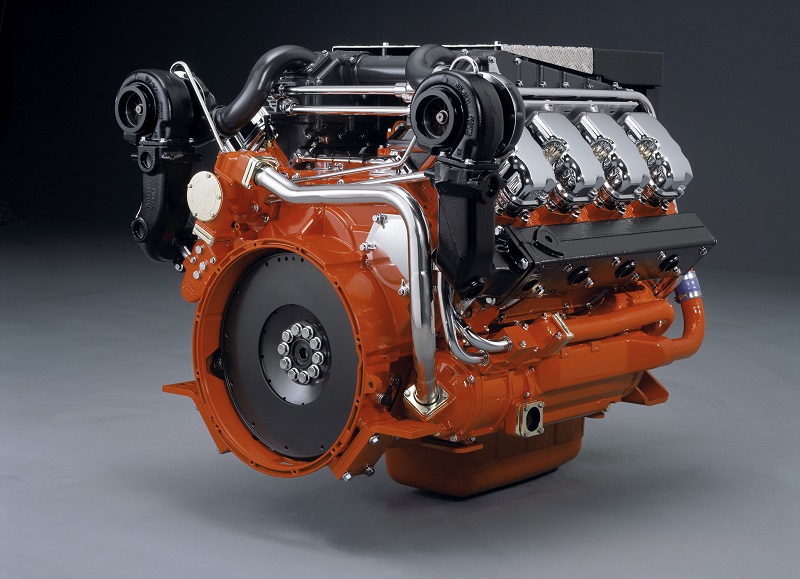
Ever wondered about the grand machinery at work beneath your vehicle's hood? Have you given thought to the complexities or the incredible engineering feats of the diesel engine powering your vehicle? Do you fully understand their appeal beyond their superior strength and noteworthy fuel economy? As a car owner, appreciating the ingenuity of a diesel engine is perhaps as important as understanding how to maintain and service it for optimized efficiency. In this expose, we'll delve deep into the mechanics and maintenance of these hard-working engines.
Today’s diesel engines account for a significant portion of the global automotive mix and are renowned for their durability and efficient fuel configurations. Nevertheless, as inconceivably intricate as these engines are, they can indeed be tamed with the right insight and tools at hand. In simple terms, this piece is your ticket to sailing smoothly with your diesel vehicle.
In this comprehensive guide, we'll take a look at how a diesel engine operates, why it is necessary to keep it well-serviced and maintained, and, peculiarly, answer questions you didn't realize you should ask. We'll also discuss the "good, bad, and ugly" of diesel engines, with a hint at the do's and don'ts of owning a diesel vehicle.
Mechanics of a Diesel Engine
To begin with, let's make sense of the jigsaw puzzle that a diesel engine may seem to the unversed. Comprised of various intricate parts each performing a unique function, it's like a symphony of perfectly timed movements and actions.
First, in a diesel engine, air is drawn into the cylinder and compressed to a high pressure. Since air heats up when compressed, the temperature in the cylinder becomes sufficient to ignite the diesel fuel that's then injected. The ignited fuel drives the piston down, generating power. The process ends with the exhaust gases being driven out of the cylinder.
Understanding the mechanics of your diesel engine is the first step towards its effective management and maintenance. Remember, an engine in full health translates to a vehicle in peak performance.
Why Diesel Engine Maintenance is Essential
Diesel engines are recognized for their durability, strength, and greater fuel economy compared to their petrol counterparts. These advantages, however, can only be fully leveraged through prudent maintenance. Without regular service, even the most robust diesel engine can begin to show signs of wear and tear, impacting its overall efficiency and longevity.
Be it for commercial use or personal driving, a well-maintained diesel engine guarantees smoother rides, reduces chances of unexpected breakdowns, and even helps in maintaining the vehicle's resale value. Consider it as a necessary investment for the long-term well-being of your vehicle.
Regular Check-Up and Maintenance Practices
One of the keys to ensuring that your diesel engine performs at its best is sticking to a regular maintenance schedule. Regular oil changes, fuel filter replacements, and coolant checks are some of the simple steps that can make a world of difference to your engine's health and efficiency.
In addition, keep a close eye on the condition of your air filters since diesel engines require large volumes of air. Lastly, remember to pay heed to your engine's warning systems. Often, they’re your first line of defines and prompt action at such instances can save you hefty repair costs.
The Pros and Cons of Diesel Engines
Now, let's discuss the highs and lows of owning a diesel engine vehicle. On the upside, diesel engines offer impressive fuel efficiency. They can cover more miles per gallon of fuel as compared to petrol engines. These engines are also well-regarded for their durability and reliability.
On the flip side, diesel engines can be a tad costlier to repair as their parts are more complex and expensive compared to parts in petrol engines. Additionally, diesel engines can be noisier than their petrol counterparts, potentially a detractor for some users.
Understanding Diesel Fuels
Diesel fuels come in varying grades and understanding these can be beneficial for your engine's performance. The cetane number, for instance, indicates the fuel's ignition quality. Choosing the right fuel can aid in reducing engine noise and improving fuel economy.
Dealing with Common Diesel Engine Problems
Like any machined part, diesel engines are not immune to the occasional hiccup. Some common issues include overheating, oil oxidation, and issues with the fuel injection system. Knowing how to identify these problems and when to seek professional help can save you headaches down the road.
The road to diesel engine ownership can feel like uncharted territory. However, with the right understanding of how this impressive machinery operates, its potential pitfalls, and the simple steps toward regular maintenance, you can confidently navigate this path.
At the end of the day, owning and maintaining a diesel engine boils down to understanding, vigilance, and timeliness. Here’s to many more miles on the road with your faithful diesel companion. The above information helps you to learn about diesel engine. You can find more details by visiting this link.






0 comments:
Post a Comment